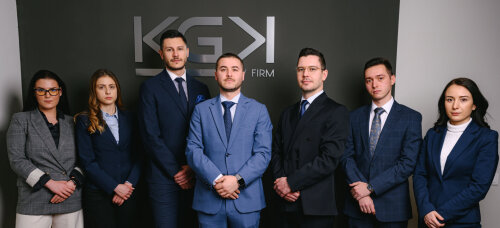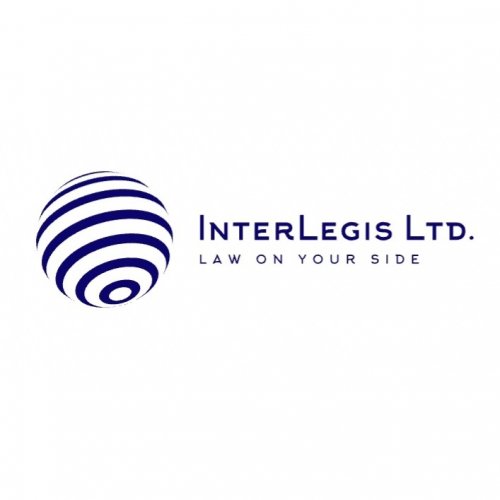Best Space Law Lawyers in Sofia
Share your needs with us, get contacted by law firms.
Free. Takes 2 min.
List of the best lawyers in Sofia, Bulgaria
About Space Law in Sofia, Bulgaria
Space Law is a relatively new and evolving field of legal practice in Sofia, Bulgaria, as well as globally. It encompasses the body of laws, agreements, and regulations that govern activities related to outer space exploration. In Bulgaria, space law governs areas such as satellite communications, space debris, and international cooperation for space exploration. Sofia, being the capital, also hosts several firms and organizations that specialize in this field, providing both legal expertise and advisory services to individuals and organizations involved in space-related activities.
Why You May Need a Lawyer
There are several scenarios where individuals or companies in Sofia may require legal assistance in Space Law:
- Starting a Space Technology Company: Entrepreneurs looking to start a space technology company will need to navigate complex regulatory landscapes and seek grants or investment that involve legal considerations.
- Satellites and Communications: Operating or managing satellite communications involves compliance with both national and international regulations.
- International Partnerships: Any collaborations or contracts with foreign space agencies or companies may need thorough legal vetting.
- Government Projects: Participating in government-led space projects often requires understanding specific legal requirements and obligations.
Local Laws Overview
In Bulgaria, the laws pertinent to space law are influenced by international treaties and national regulations. Bulgaria is a signatory to several space-related treaties such as the Outer Space Treaty, the Rescue Agreement, and the Registration Convention. Locally, the Bulgarian Space Agency works alongside national governmental policies to ensure compliance with these international obligations, particularly focusing on satellite launches, space research collaborations, and safety protocols concerning space debris management.
Frequently Asked Questions
What is the Outer Space Treaty?
The Outer Space Treaty, signed in 1967, is the foundational framework for international space law. It establishes key principles such as the use of celestial bodies for peaceful purposes, non-appropriation of outer space by any one country, and liability for damage caused by space objects.
Can a private company in Sofia own and operate a satellite?
Yes, private companies in Sofia can own and operate satellites, but they must adhere to both national regulations governed by the Bulgarian Space Agency and international agreements concerning space activities.
What are the requirements to start a space-related business in Bulgaria?
Starting a space-related business in Bulgaria requires incorporation, registration with relevant Bulgarian authorities, and obtaining necessary licenses for any space operations. Due diligence must be done in terms of compliance with national and international space laws.
Are there tax incentives for space projects in Bulgaria?
The Bulgarian government occasionally offers tax incentives and grants for innovative projects, including those within the space sector, as part of its strategy to promote research and development.
How does Bulgaria handle space debris issues?
Bulgaria follows international guidelines related to space debris management and collaborates with global partners to adopt practices that minimize debris generation and ensure the sustainable use of outer space.
What is Bulgaria's role in international space law?
Bulgaria actively participates in international space law discussions and is a member of the United Nations Committee on the Peaceful Uses of Outer Space (COPUOS), contributing to the development of space policies and regulations.
Do I need a license to launch a satellite from Bulgaria?
Yes, you will require a license from the Bulgarian authorities to legally launch a satellite. The process involves meeting national and international safety, registration, and environmental regulations.
How can one work with the Bulgarian Space Agency?
Engagement with the Bulgarian Space Agency typically requires aligning with their project requirements, submitting proposals subject to review, and maintaining compliance with national space policies.
What legal issues should be considered in international space collaborations?
Legal issues in international space collaborations include compliance with multinational treaties, negotiations on technology sharing, liabilities for potential damages, and intellectual property rights.
What are the career opportunities in space law in Sofia?
Career opportunities include roles in legal consulting firms, governmental bodies, space technology companies, international law entities, and academic institutions focusing on space research and education.
Additional Resources
For further information and support related to space law in Sofia, you may consider the following resources:
- Bulgarian Space Agency: The primary governmental body dealing with space activities in Bulgaria.
- Local law firms specializing in Space Law: Seek out firms with dedicated practices in international and space law.
- Space Law Conferences and Workshops: Participating in these events can provide additional insights and networking opportunities within the space law community.
Next Steps
If you are in need of legal assistance in Space Law, consider taking the following steps:
- Consult with an Expert: Reach out to a law firm specializing in space law or an independent space law practitioner in Sofia.
- Research local regulations: Familiarize yourself with the local and international laws that might affect your activities.
- Engage with Professional Networks: Join forums or professional groups that focus on space law to stay updated on new developments and opportunities.
Lawzana helps you find the best lawyers and law firms in Sofia through a curated and pre-screened list of qualified legal professionals. Our platform offers rankings and detailed profiles of attorneys and law firms, allowing you to compare based on practice areas, including Space Law, experience, and client feedback.
Each profile includes a description of the firm's areas of practice, client reviews, team members and partners, year of establishment, spoken languages, office locations, contact information, social media presence, and any published articles or resources. Most firms on our platform speak English and are experienced in both local and international legal matters.
Get a quote from top-rated law firms in Sofia, Bulgaria — quickly, securely, and without unnecessary hassle.
Disclaimer:
The information provided on this page is for general informational purposes only and does not constitute legal advice. While we strive to ensure the accuracy and relevance of the content, legal information may change over time, and interpretations of the law can vary. You should always consult with a qualified legal professional for advice specific to your situation.
We disclaim all liability for actions taken or not taken based on the content of this page. If you believe any information is incorrect or outdated, please contact us, and we will review and update it where appropriate.











